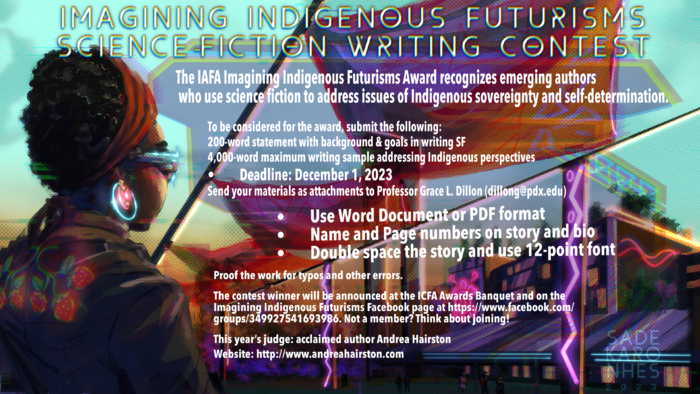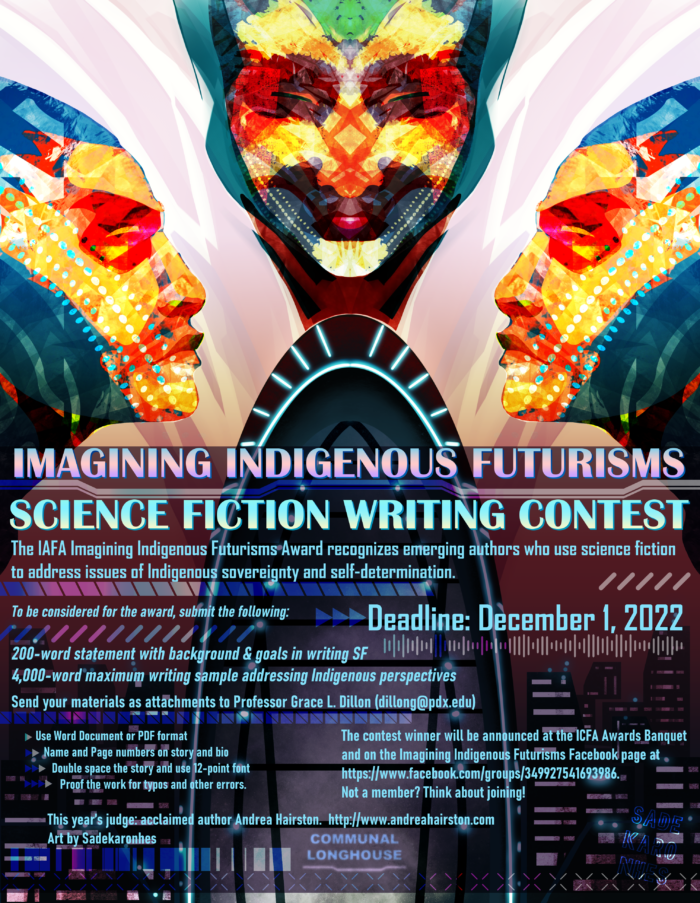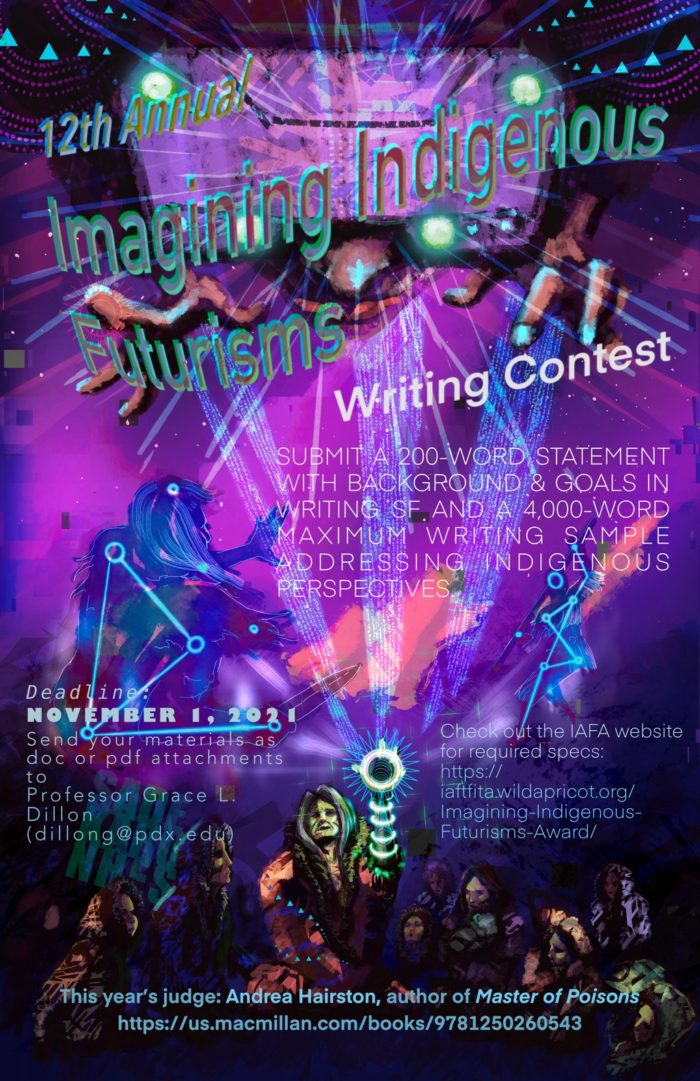Short List:
The Tangle by Rae Mariz
This story is an insightful, delightful evocation of the many unseen dimensions and worlds within our own universe.
The Good One by Allanah Hunt
Allanah Hunt’s evocation of the racist structures, values, and attitudes that come at Indigenous Australians daily, is powerful, deeply felt, and insightful.
Spirit Medicine by Gina McGuire
Gina McGuire has crafted a beautiful and heartful story about the complexity of maintaining indigenous healing traditions when crucial plants and practices needed to implement such traditions have been destroyed or compromised by colonialism.
Winner: Alina Pete for Telling the Soul of Mars
In poetic prose, Alina Pete is the sacred storyteller who, like her main character, captures the souls of Mars and Earth. She connects readers to the ancestors and to those we dream of who are yet to come. The story delves deeply into the power of indigenous traditions—of story-making, world building, and the transmission of culture across time and space. Pete speaks to the powerful resilience of Indigenous cultures, sciences, and traditional educational practices, while showing us how those traditions adapt and endure in the face of great challenges. From the first sentence, Pete’s story is a delight to read, full of beauty, wisdom, struggle, and hope. As we face the known and the unknown, as we continue to be at home in a wild and chaotic universe, Pete’s elegant narrative insists on the scared significance of storytelling to our humanity.

 To be considered for the award, submit the following:
To be considered for the award, submit the following: The IAFA Imagining Indigenous Futurisms Award recognizes emerging authors who use science fiction to address issues of Indigenous sovereignty and self-determination.
The IAFA Imagining Indigenous Futurisms Award recognizes emerging authors who use science fiction to address issues of Indigenous sovereignty and self-determination.